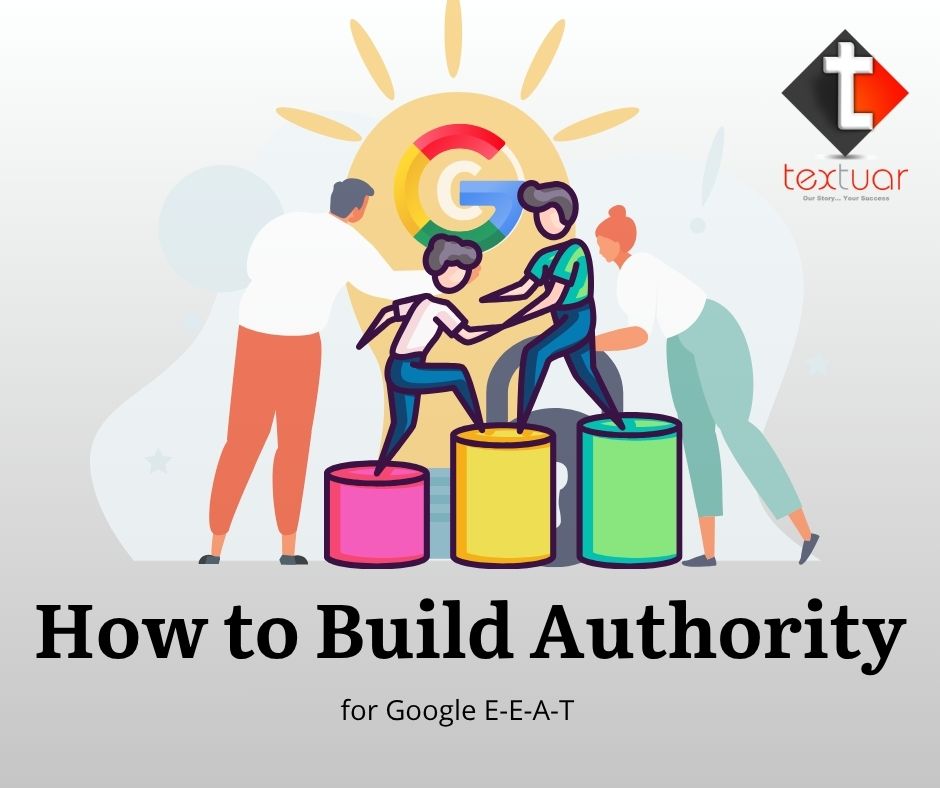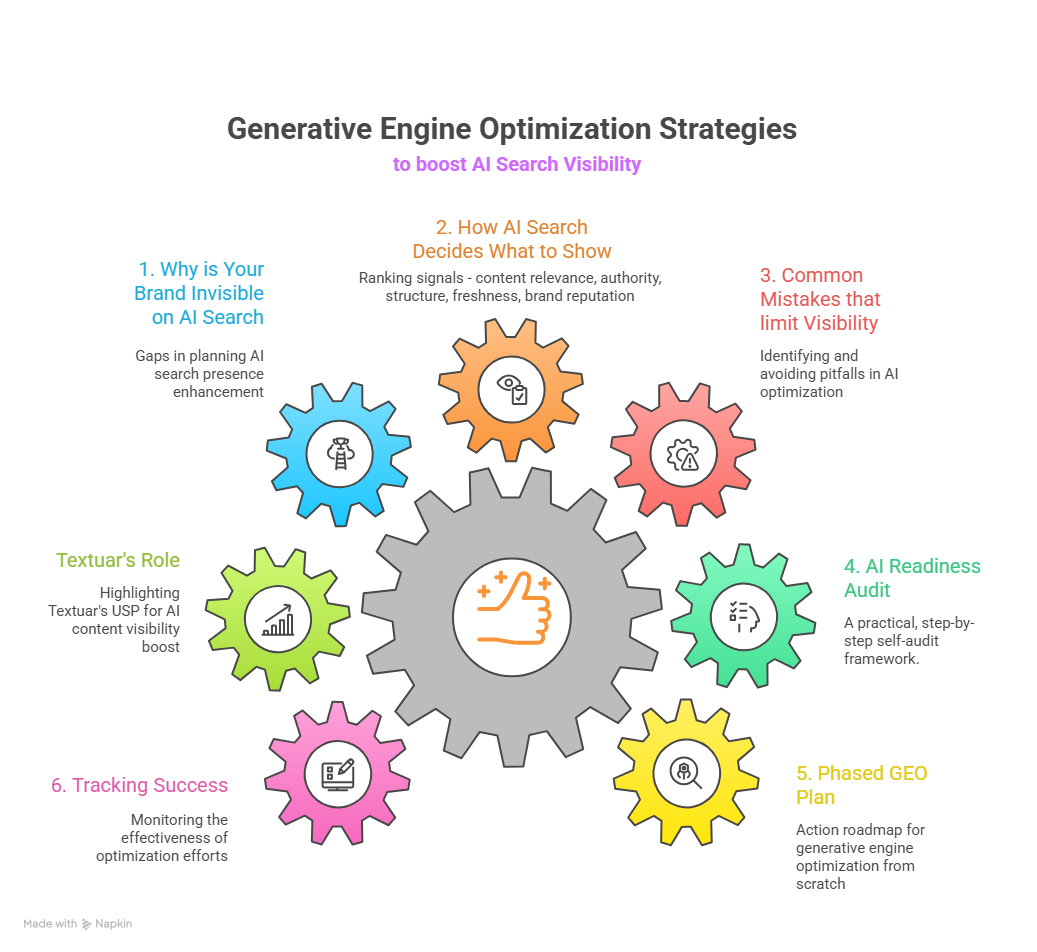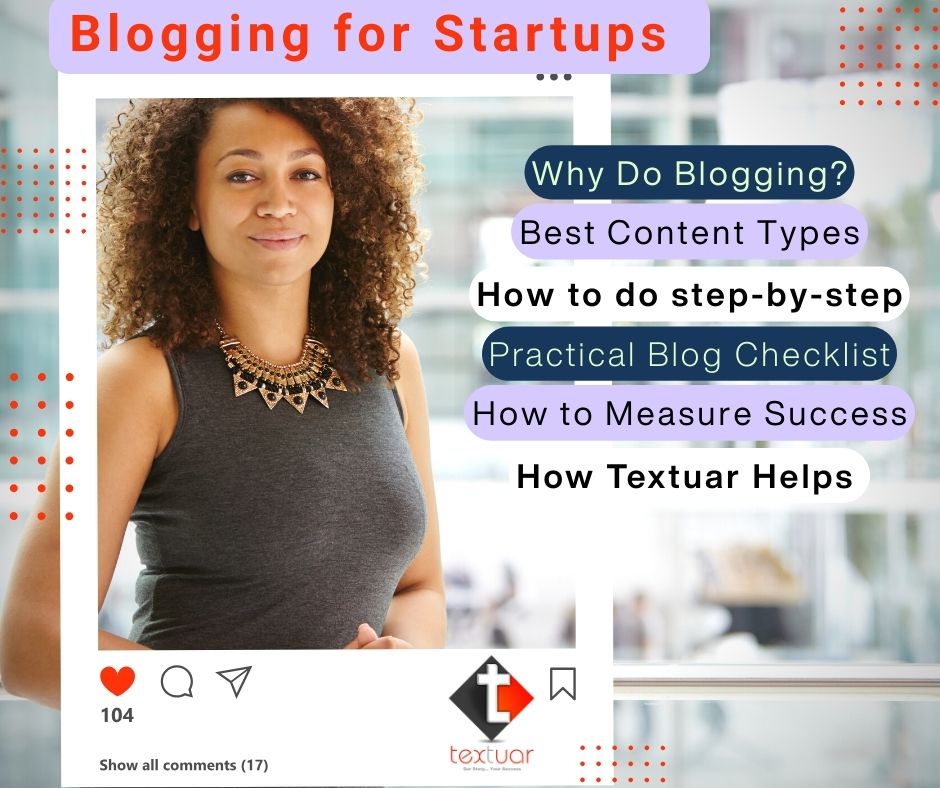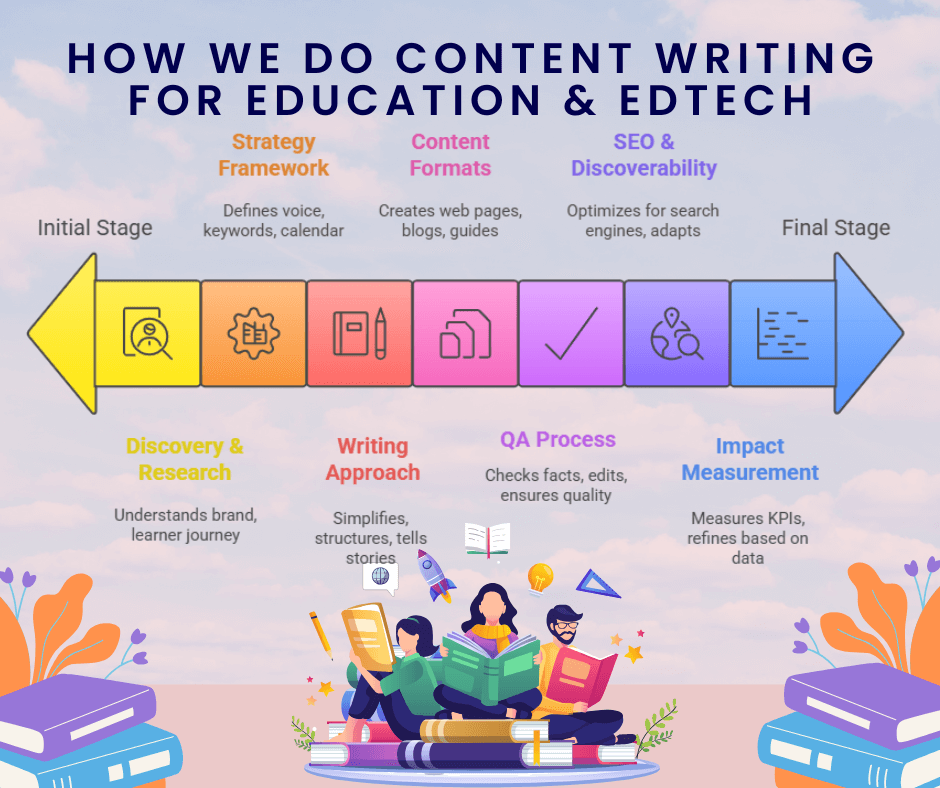📌 TL;DR Summary- What is Covered?
4 Tips to Create Authoritative Content for Google E-E-A-T in 2026
- Write People-First Content: Answer real user questions clearly, completely, and with helpful structure.
- Show Expertise & Experience: Use case studies, examples, and strong author credentials to demonstrate authority.
- Create In-Depth, Well-Organized Content: Use clear headings, actionable steps, and remove fluff for maximum clarity.
- Build Trust with Reliable Sources: Cite current, credible references and maintain transparency to strengthen trustworthiness.
Getting your website to show up on Google has become really tough. If you’ve been trying to get noticed online, you’ve probably realized that the old tricks just don’t work anymore. You can’t just stuff keywords into short blog posts or write thin content and expect to rank well.
Google became so smart. It can now easily distinguish between content that actually serves to assist people and content that is simply trying to manipulate the system. This shift has resulted in authoritative content for Google becoming the top priority that you should concentrate on if you want your site to rank well and get visitors.
Consider it – when you are looking for something significant, such as advice on your health, financial tips, or learning how to repair something, you desire answers from someone who actually knows their stuff. That’s what Google attempts to provide its users.
If you want your website to differentiate itself from millions of others competing for eyeballs, you have to establish genuine trust around your subject matter. That is, produce content that people actually desire to read, share, and return to.
In this complete guide, you’ll learn everything about creating content that both Google and your readers will love. We’ll share proven methods, real examples, and practical tips you can start using today to build your authority and improve your search rankings.
Why Being Seen as an Expert Matters More Than Ever?
1- It Indicates E-E-A-T Signals
Google’s main job is to help people find the best answers to their questions. To do this well, Google has smart ways to find content that’s genuinely helpful, accurate, and trustworthy.
Google focuses on something called E-E-A-T, which stands for Experience, Expertise, Authoritativeness, and Trustworthiness. While Google doesn’t use E-E-A-T to directly rank pages, it uses hundreds of clues to find content that shows these qualities.
This is extra important for topics that Google calls “Your Money or Your Life” – basically anything that could affect someone’s health, money, or safety. If you’re writing about medical advice, investment tips, or safety instructions, Google is going to be very picky about which content it shows to users.
2- It Builds Brand Authority
Creating authoritative content for Google isn’t just about ranking higher in search results (though that’s definitely a nice bonus). Here’s what you really get:
a- People Stay Longer: When you take time to answer questions completely and clearly, people stay on your website longer. They’re more likely to read other articles, sign up for your newsletter, or save your site for later.
b- Other Sites Link to You Naturally: As per SEMrush’s Rachel Handley, “authoritativeness refers to your reputation as a reliable source.” Other websites naturally want to link to content that’s well-researched and helpful. These links are like votes that tell Google your site is worth trusting. The more quality links you get, the more Google sees your site as an expert source.
3- Authoritative Content for Google Creates Trust Online
Online customers find it challenging to engage someone who is not present face-to-face. Your content will become the interface your brand needs to generate trust, which will result in these advantages.
a- More Trust Means More Sales: When people see you as an expert in your field, they are much more likely to trust your advice, buy your products, or hire your services. Being seen as an authority directly helps your business succeed.
b- Your Content Lasts Longer: While trends and Google’s rules change, quality content that genuinely helps people tends to do well over time. You’re building something that will keep working for years.
A great example is what happened with Wirecutter after The New York Times bought them. By focusing on creating detailed, user-focused content with thorough product testing and honest reviews, they doubled their search traffic in just one year. This shows how investing in authority pays off in both rankings and real business results.
How to Create Authoritative Content for Google?
As a savvy marketer, you might want to know how to create authoritative content for Google. With our experience in building brand citations for organic searches as well as Generative Engines like ChatGPT, we might have a few helpful tips.
| How to Create Authoritative Content for Google E-E-A-T? | ||
| Strategy | Key Action Points | Purpose / Benefit |
| 1. Put Readers First | – Write for humans, not search engines | Boosts engagement and trust |
| – Focus on helping, not ranking | ||
| 2. Understand Reader Intent | – Use Google’s “People Also Ask” | Create relevant, value-driven content |
| – Monitor forums, social media | ||
| – Conduct keyword & competitor research | ||
| 3. Structure Content Clearly | – Strong intro | Improves readability and navigation |
| – Clear headings | ||
| – Actionable steps | ||
| – Strong conclusion with next steps | ||
| 4. Solve Real Problems | – Go beyond surface info | Builds usefulness and relevance |
| – Offer guides, case studies, how-to’s | ||
| 5. Focus on Depth, Not Fluff | – Cover topic thoroughly | Enhances credibility and ranking potential |
| – Avoid filler | ||
| – Provide detailed steps and examples | ||
| 6. Add Visual & Real-World Value | – Use screenshots, diagrams, examples | Makes content engaging and easier to understand |
| – Include multiple viewpoints when relevant | ||
| 7. Use Trusted Sources | – Link to high-authority sites | Signals trust to Google and readers |
| – Credit experts | ||
| – Keep sources current and varied | ||
| 8. Stay Focused on the Topic | – Avoid going off-track | Gives you the impetus to drive long-term results with authoritative content. |
| – Organize by user goals | ||
| – Use topic clusters for related content | ||
Let us explore these points in detail
a. Always Put Your Readers First
1- The Most Important Rule
Here’s the most important thing to remember when creating authoritative content for Google: write for real people, not search engines. Google’s own rules emphasize the importance of “people-first content,” and there’s a good reason for this.
When you focus on truly helping your readers, everything else naturally falls into place. Your content becomes more interesting, people spend more time reading it, they are more likely to share it, and other websites want to link to it. All of these are good signs that Google is looking for.
2- Find Out What Your Readers Really Want
Before you write anything, you need to understand what your readers are looking for. This goes beyond just knowing what words they search for – you need to understand why they are searching, what frustrates them, and what they are trying to accomplish.
Start by putting yourself in your reader’s place. Try to determine the questions they are asking. What problems are they trying to solve? What worries keep them up at night? The better you understand these things, the better you can create content that truly helps them.
Here are some easy ways to research what your audience needs-
a- Use Google’s “People Also Ask” Feature
When you search for topics in your area, Google shows you related questions that people commonly ask. These are gold mines of content ideas that you know people are actually interested in.
b- Check Out Online Communities
Visit places like Reddit, Quora, Facebook groups, and industry forums where your target audience spends time. Look at the questions they are asking and the discussions they are having. This gives you insight into their real concerns and how they talk about things.
c- Look at Keyword Research
Tools like SEMrush, Ahrefs, or even Google’s Keyword Planner can show you what people are actually typing into search boxes. Look for patterns in what’s popular and its related terms. They will help you get ideas for authoritative content for Google.
d- Study Your Competition
This is another idea to create authoritative content for Google. You can look at the content that’s already ranking well in your area. What questions are they answering? What seems to be missing or could be done better?
3- Setting Up Your Content to Help People Fast
Once you understand what your audience wants, you need to organize your content in a way that helps them quickly and easily. Here is how:
a- Begin with a Promising Statement
Your introduction must immediately inform readers what they will be learning and why they should care. Do not leave them wondering about your article’s topic.
b- Use Explicit Headings
Your headings should function as a guide, allowing readers to find the information they want in a quick glance. It should be possible for someone to scan your headings and know the overall points of your article.
c- Give People Things They Can Actually Do
Don’t tell people about ideas and concepts – give people concrete steps to take or actions to try immediately. People value curiosity over theory.
d- End the Authoritative Content for Google with Clear Next Steps
Close your content by recycling the key points and informing readers precisely what they need to do next.
For instance, when a person types in “how to produce authoritative content for Google,” they are looking for step-by-step instructions, actual examples they can learn from, and links to resources or tools that will assist them in getting started. You need to provide them with precisely what they are seeking.
4- Focus on Solving Real Problems
The information that works best on Google is information that responds to the actual needs of actual people. This means going beyond the surface level of information to produce actual value.
Instead of writing generic posts about general subjects, write detailed guides, real reviews, case studies, and how-to’s that people can apply in real life. Before posting, ask yourself: “Is this really going to help someone reach their goal?” If you’re not sure, keep at it.
b. Create In-Depth Content
1- Quality Always Beats Quantity
When it comes to authoritative content for Google, how well you cover a topic matters much more than how many words you write. Google’s systems are smart enough to tell the difference between content that truly covers a subject and content that just fills space with fluff.
This doesn’t mean you should write short articles, but it does mean that every word should have a purpose. Your goal should be to create the most complete, helpful resource on your topic.
2- How to Add Real Value to Your Authoritative Content for Google
a- Break Down Hard Subjects into Easy Steps
Break up difficult topics and put them in a step-by-step process that’s easy to follow. Utilize numbered lists, headings, and seamless transitions among ideas.
b- Eliminate Fluff
This is another valid point that elevates user experience for the reader. Each sentence must assist the reader in some manner. If a sentence does not provide value, educate, or get the reader closer to his objectives, it will be best to eliminate it.
c- Add Examples and Images
Real-life examples, screenshots, graphs, and images help to simplify abstract ideas. Visuals also make text more readable and your content more engaging.
d- Demonstrate Alternative Perspectives
If possible, show alternative perspectives to provide readers with a comprehensive overview of the subject.
c. Build Trust Through Good Sources
1- Why Source Quality Matters
One of the fastest ways to build trust with both readers and Google is to reference high-quality, credible sources throughout your content. This shows that you’ve done your homework and that your information is based on reliable data rather than just opinions.
Google’s quality guidelines specifically emphasize the need for accuracy and trustworthiness, especially for topics that could affect people’s health, finances, or safety. By citing credible sources, you’re showing Google that your content meets these standards.
2- How to Choose and Use Sources Well
a- Link to Trusted Sources
Reference official documentation, academic research, government websites, and respected industry publications. You should avoid citing low-quality sources or websites with questionable credibility.
b- Give Credit Where It’s Due
When you mention statistics, quote experts, or reference studies, always link directly to the original source. This not only boosts your credibility but also helps readers verify the information for themselves.
c- Use Recent, Relevant Sources
Make sure your sources are current and directly related to your topic. Outdated information can hurt your credibility, especially in fast-moving fields.
d- Use Multiple Sources
Don’t rely on just one or two sources. Use multiple credible sources to provide a well-rounded perspective on your topic.
e- Be Honest About Limitations
If a source has limitations or if information is uncertain, be honest about it. This builds trust and shows that you’re committed to accuracy.
Research has shown that pages with links to authoritative sources tend to have higher trust scores and often get better rankings. This makes sense – Google sees these links as evidence that your content is well-researched and reliable.
d. Stay Focused When Creating Authoritative Content for Google
1- Why Focus Matters for Authority
One of the biggest mistakes content creators make is trying to cover too much ground in a single piece of content. When you stay tightly focused on your main topic and what users are trying to accomplish, you create much stronger authoritative content for Google.
2- How to Stay Focused Throughout Your Content
a- Organize Around What Users Want
Make sure to structure your headings and subtopics around what users are actually trying to accomplish. If someone searches for “how to start a blog,” they want specific steps, not a general discussion about the history of blogging.
b- Avoid Going Off Track
It might be tempting to include related information that might be interesting, but if it doesn’t directly help users reach their goal, leave it out or save it for a separate article.
c- Use Your Main Topic as a Filter
Before including any information, ask yourself: “Does this directly relate to my main topic and help users accomplish their goal?” If not, cut it.
d- Create Topic Clusters
Instead of trying to cover everything in one massive article, create multiple focused articles that link to each other. This approach helps you build topical authority across your entire website.
What Mistakes can Hurt Your Authority?
Well-intentioned content creators are even capable of making mistakes that damage their attempts to produce authoritative content for Google. The most common errors are:
1- Writing For Search Engines Rather Than Humans
Keyword stuffing, awkward language, and poorly flowing writing are sure signs that you’re writing for spiders rather than humans.
2- Too Many Topics in Authoritative Content for Google
Attempting to discuss too many topics in a single piece of content dilutes your credibility and confuses readers and search engines alike.
3- Bad or Obsolete Sources
Drawing upon questionable sources or not revising information when it becomes outdated can severely harm credibility.
4- Failure to Display Author Information
Anonymous posts or generic author bios do not capitalize on opportunities to build expertise and credibility.
5- Ignoring User Experience
Great content that’s presented poorly won’t perform well, no matter how good the information is.
6- Not Updating Content Regularly
Even the best content becomes outdated over time. Failing to keep information current can hurt your authority.
Conclusion
Creating authoritative content for Google is about much more than just improving your search rankings. It’s about building genuine expertise, establishing trust with your audience, and providing real value to the people who need your help.
The strategies we’ve covered in this guide – focusing on user needs, showing expertise, providing depth and clarity, citing credible sources, being transparent, staying focused, making content easy to use, and earning quality links – all work together to create content that both Google and your readers will value.
The most important thing to remember is that authority isn’t built overnight. It takes consistent effort, ongoing learning, and a genuine commitment to helping your audience. But when you get it right, the results speak for themselves: higher rankings, more traffic, greater trust, and ultimately, more business success.
Start using these strategies today, and be patient with the process. Hire Textuar to create the best possible resource for your readers. This move will help you climb up the search rankings for organic searches and generative engine platforms.
Authoritative Content for Google – Frequently Asked Questions
1. What exactly is authoritative content for Google?
Authoritative content for Google is content that shows expertise, authority, and trustworthiness. It provides accurate, in-depth answers to user questions and is supported by credible sources and real experience.
2. How does Google actually measure authority in content?
Google uses hundreds of signals to assess authority, including author credentials, links from reputable sites, content depth, user engagement metrics, and how well the content follows E-E-A-T guidelines.
3. How often should I update my content?
You should review and update your content at least once a year or whenever new information becomes available in your field. For fast-moving topics, updates might be needed more often to stay accurate and relevant.
4. Can brand new websites create good content?
Absolutely! Even new websites can build authority by focusing on depth, thorough research, transparency, and genuine expertise. It may take longer to build trust and earn links, but it’s definitely possible with consistent effort.
5. What’s the best way to show expertise in my content?
The most effective ways include having detailed author bios for qualified writers, sharing personal experiences and case studies, citing reliable sources throughout your content, and being transparent about your background and qualifications.
6. How do I know if my content is actually trustworthy?
Trustworthy content is transparent about sources and methods, well-researched, unbiased, and regularly updated. Good signs include positive user engagement, natural links from other reputable sites, and feedback from readers who found your content helpful.
7. Should I focus on long content to build authority?
Length alone doesn’t create authority – depth and usefulness do. While comprehensive topics often require longer content, focus on providing complete, helpful answers rather than hitting a specific word count. Quality and thoroughness matter more than length.









